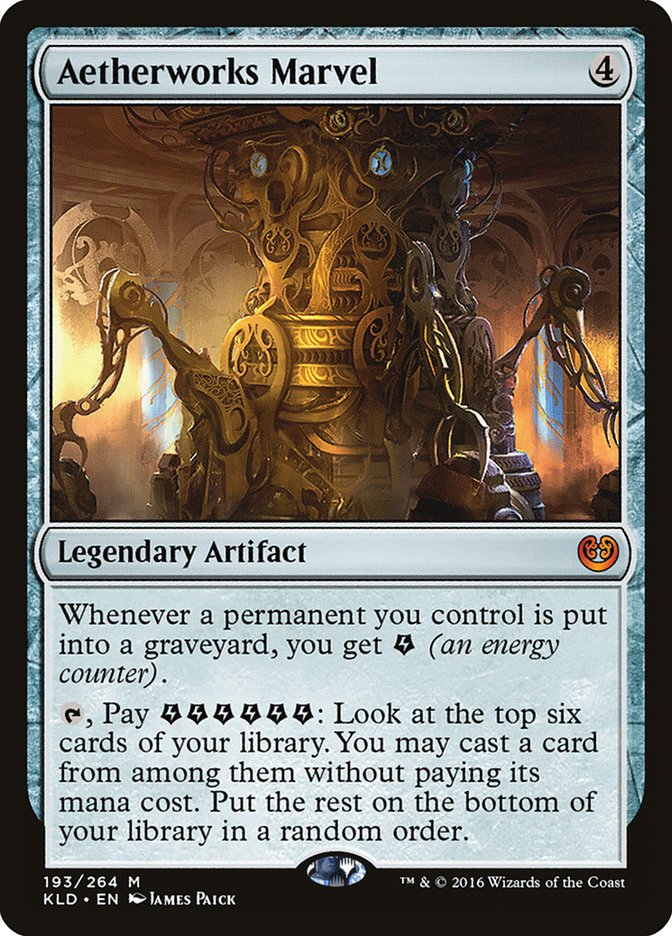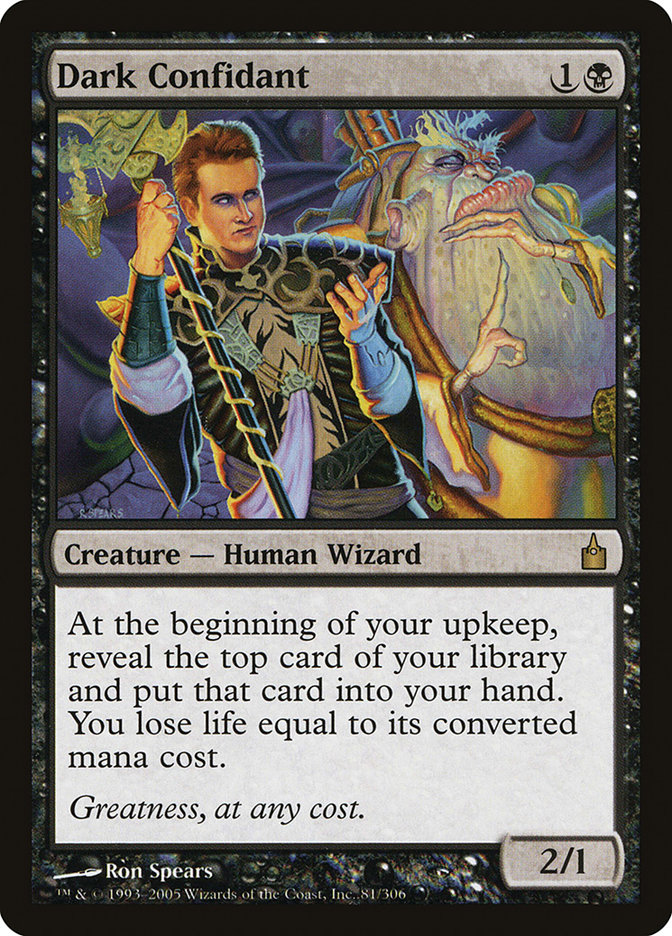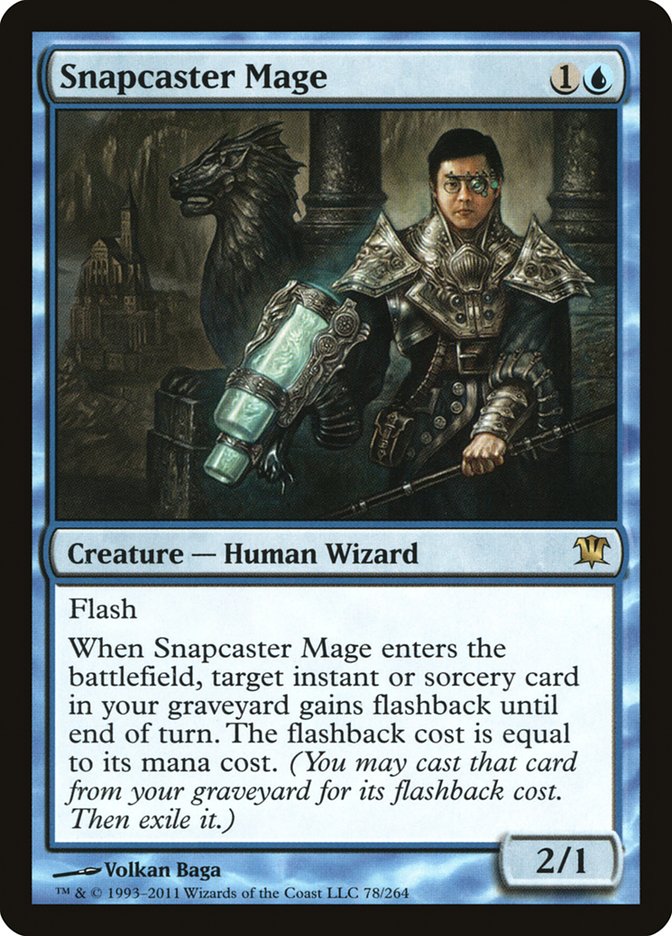Today I’m going to talk about everything I’d change about Magic if it were
all up to me. The title is intended to highlight the level of fantasy
involved in this exercise as well as a self-aware level of childishness and
naivete about some of these changes; while I’ll acknowledge practical
concerns, there may be a lot of points that aren’t realistic or that too
many others wouldn’t like. While some ideas might be a bit pie-in-the-sky,
I intend for this to offer serious ideas that I think are worthy of real
consideration as well. Let’s start with the easiest changes to implement:
Changes to the Banned and Restricted Lists
Vintage
Unrestrict:

Restrict:

Paradoxical Outcome is a card I expect WotC will restrict fairly soon. It’s
basically a better version of cards like Windfall that are already on the
restricted list in this format, and there’s no real reason for it to remain
legal as far as I can tell.
I’d want to carefully monitor all the cards being unrestricted here, but I
think it’s unreasonable to restrict four different artifacts that are fine
in Legacy just because Mishra’s Workshop, a card more powerful than the
vast majority of the restricted list, has immunity because it’s worth a lot
of money while leaving Shops as the best deck. I think Vintage would still
see Mishra’s Workshop + artifacts as a defining strategy even if Mishra’s
Workshop were restricted. Bazaar of Baghdad is another card that simply
isn’t reasonable on power level and weirdly has immunity.
I think both lands considerably hurt the format, and I’d hope that
restricting both of them would open the format up to substantial
reimagination and rejuvenation, and I’d try to promote its rebirth on Magic
Online.
Legacy
I’d remove the legality extended to supplemental products including Portal, Portal: Three Kingdoms, Conspiracy, Planechase, all the Commander products, and whatever else
wasn’t legal in Standard when it was first released. I feel like the
development process on these cards is too lax and most of the cards that
show up in Legacy just don’t feel like real Magic cards. I want Legacy to
be a celebration of Magic’s history, and these cards feel wrong to me. This
is the kind of change I know simply won’t happen.
Additionally, I’d ban Deathrite Shaman and probably unban Earthcraft.
Modern
I’d remove 8th Edition and 9th Edition from the list of
legal sets. They’re easy to distinguish because they’re the only
white-bordered sets that are currently legal, and cards like Choke simply
don’t match the feel of Modern design present in the rest of Modern.
I’d ban the fetchlands and unban Green Sun’s Zenith, Stoneforge Mystic, and
Umezawa’s Jitte.
As I’ll get to later, I think shuffling your library once a game of Magic
has started is bad for the game in all cases. It basically adds “loading
screens” to the game play experience that simply decreases the fun of the
game, and it also serves to reduce the most fun kind of variance: playing
with different spells each game. That said, I don’t think it’s reasonable
to remove all search from Modern, but I think the fetchlands collectively
are the biggest offenders and offer the least benefit in the aggregate.
As to the unbannings, this is a different position than I’ve taken
previously, but I think we should try to err toward allowing any card that
encourages a longer game for a while and only remove them again once they
prove problematic. Last weekend’s No Banned List Modern Open certainly
informed this, but I think it’s possible that I’m being too conservative
about Stoneforge Mystic just because it’s such a clear mistake that it was
ever printed.
Standard
Unban Aetherworks Marvel.
Ban Goblin Chainwhirler.
Like Bloodbraid Elf, Aetherworks Marvel was just a misfire. Energy was a
poorly balanced mechanic, but time has shown that it was the enablers
rather than the payoffs that were the problem. With Eldrazi out of the
format and the banning of Attune with Aether and Rogue Refiner, Aetherworks
Marvel has no need to remain banned.
Goblin Chainwhirler may or may not be the most offensive card that
currently leads to the dominance of Mono-Red and R/B strategies in
Standard, but regardless of its precise power level, the card is good
enough that it’s reasonable to expect it to see ubiquitous play throughout
its time in Standard, and it provides so much pressure against playing
one-toughness creatures that it just creates too large of a constraint on
the format. I don’t see a path forward for Standard that doesn’t involve
eventually banning Goblin Chainwhirler.
New Design Direction: Searching and Token Basic Lands
From this point forward, I’d stop printing any cards that search a library
for any reason. I’d print cards that create basic land tokens (I’d expect
people to just use unsleeved basic lands to represent these tokens most of
the time, but specific land tokens could also be included in boosters), and
Rampant Growth variants moving forward would just create land tokens.
Beyond that, I’d lean on looking at the top X cards of a library where I
want that kind of effect. I think Magic might already be moving in this
direction, which is great, but I’d make it a hard rule immediately.
As mentioned above, I think the downtime in the middle of a game while
waiting for a player to search and then shuffle their library is just
wasted time, and games are more fun the less time needs to be wasted in the
middle. This would also be a huge boon for coverage as well as minimizing
the opportunity for shuffle cheats.
New Organized Play Philosophy
Never remove players from eligibility for an event based on success. I
understand why players aren’t allowed to play in qualifiers for events
they’re already qualified for, but I think a history of accepting the
current solution has led to a blind spot about how horrible it is for the
game.
Game stores rely on Alpha Customers, the kind of customer who will
bring a group of friends to a store and help organize and grow a local
community. In Magic, these are usually the most dedicated players and the
most likely to succeed in local tournaments. The policy that exists
currently removes those players from their local scenes, which cripples the
growth of those communities. The fact that it’s considered weird for a pro
player to show up at FNM or a Prerelease, and they’d have no reason to show
up at a PPTQ as they wouldn’t be allowed to attend, means that pros have
little to no connection to their local communities. This means they’re not
there to teach newer players, to normalize their extremely high levels of
investment, and they’re not at local tournaments just to act as a draw for
aspiring players to have a chance to pick their brains.
I speak from a lot of personal experience here. The fact that I don’t play
in local tournaments means that most of the players I know locally are
people I met years ago or people they introduced me to who they met at
local tournaments. When I organize events at my house rather than the local
store because I want to play with people I know, I pull the most invested
players out of local communities and into private communities, which
creates a further barrier to aspiring players to get an in to the top level
of their local communities since those often happen in private.
We must find another approach. Pros should be strongly encouraged to show
up and participate in local events of all types, but this isn’t just about
pros. A kid might plan their schedule for months around attending PPTQs
with a group of their friends, then win the first one and find themselves
unable to hang out with their friends or build additional tournament
experience for the rest of the season. A temporary ban shouldn’t be a
reward for winning a tournament. The fact that it is creates a culture
where the aspiration is not to play in tournaments, which makes
the tournaments feel undesirable, on top of all the other problems.
But if we just let everyone play, how do we avoid rampant collusion and
pros just conceding to their friends in events they don’t care about to
help their friends qualify?
This is a serious concern. Maybe the solution is to move away from
winner-take-all qualification models. Maybe we just need to award points
for finishes of various types and offer qualifications based on
accumulation of points. If done properly, this decreases the importance of
any single match to remove the impact of a concession. We could further
reduce the problem by finding a way to use these points in some way that
benefits players who are already qualified, so that they want them as well,
like allowing them to apply (at a reduced rate?) to future qualifications.
This change would require reworking the Organized Play structure to some
extent, but I think the philosophical change is absolutely critical. Note,
for example, that while the SCG Tour does involve qualifications for
Invitational tournaments, it does not include a mechanic that bars
qualified players from playing any other tournaments.
Changes to Pro Club
I’m not exactly sure what the solution is, but I don’t think the current
system is where things will or should end up. Moving to quarters instead of
years as the period for earning pro points does some really good things,
like making each Pro Tour as important as the others and minimizing
concessions, but the current system is extremely confusing and difficult to
plan for. I’ve basically had no idea what my pro status was like moving
forward this season, and this direction completely invalidates the
philosophy behind the event cap. Matt Severa is a working professional who
plays professional Magic as a hobby and recently qualified for Worlds as
the Constructed Master. With a wife and a full-time job, he has to be
careful about which events he attends, and while he’s on track for Platinum
and it’s almost impossible for a Grand Prix finish this quarter to help him
attain that goal, he still feels like he shouldn’t skip a Standard Grand
Prix because he might need the points later down the line when this quarter
is the oldest one that applies if he doesn’t do as well in Q1 and Q2 next
year as he did this year.
I personally wasn’t an advocate for the GP cap, but many players were,
enough that it was implemented and this change seems to accidentally rather
than intentionally revert that decision, while really making it worse for
players than it ever had been because it’s so much harder to predict the
future and know where you’re at, especially since the change is explicitly
intended to allow WotC to make changes to the program faster so players
have even less confidence about what they’re investing in. This doesn’t
feel sustainable.
Ultimately, I think we have a good amount of evidence that years are simply
too short for the level of variance that exists in Magic to determine
levels based on annual success; the sample sizes are too low and we’ve seen
too many of the absolute best players fall from Platinum to Silver after an
aberrantly bad year.
Maybe what I really want to see is a system that exists on top of the
current system for WotC to reach out to players with additional contracts,
asking pros to do more to promote the game and paying them for that work.
Leave a system like the pro levels that exist in case a player wants to
just play the game and earn rewards for it, but for those of us who are
trying to make a stable income in a predictable fashion, offer some kind of
job security in exchange for commitment to attend events and involvement in
promotional services like seminars, signings, promoted tweets, whatever
might benefit the game.
Bring Back Invitational Cards
I don’t really care about the invitational itself, but I think “your
likeness on a card” is a fantastic prize to exist in Magic somewhere. I’d
probably attach that prize to Player of the Year, which is currently just a
title, but I’d be fine with it as a prize for the World Champion instead.
The important part is that I think it should still be possible to earn.
I don’t think it’s important that players get to design the card, though it
would be cool if they could offer some comment on what kind of card they’d
like it to be, and I understand that it can be awkward to fit into some
worldbuilding, but I think there are enough supplemental products and stuff
that even if it can’t be worked into a Standard release, it could easily be
available somewhere once per year. History is such a serious motivator for
a game that competitors are so passionate about where prizes really aren’t
that huge, and nothing offers tangible history like being made into a card.
Magic Online
Regarding digital Magic offerings, obviously, things need work here.
Personally, Arena hasn’t appealed to me and I’m not sure what the best path
forward is at this point, so while I’m certainly not intending to imply
that everything is fine by omitting it from this list, I’m honestly at a
complete loss as to what the best way forward is at this point. Delegation
is important in any leadership, and if I were in charge of Magic, this is a
place where I’d have to reach out and trust other people.
Similarly, this certainly isn’t an exhaustive list of changes I’d make if I
had the power, just things that immediately come to mind. While there are
some changes that may be popular that I wouldn’t make, like removing the
Reserved List, there are certainly a lot of ideas that I’d absolutely
support and simply didn’t think to include.





